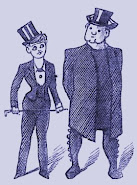“EVERY NEGRO in the South knows that he is under
a kind of sentence of death; he does not know when his turn will come, it may
never come, but it may also be at any time.” – John Dollard, Caste and Class in a Southern Town, 1937
♦
Protest and Propaganda; W.E.B. Du Bois, the Crisis, and American History, edited by Amy Helene Kirschke & Phillip Luke Sinitiere, 270 pages, 6.125 x 9.25, 32 illus., index, University of Missouri Press 2014
♦
Protest and Propaganda; W.E.B. Du Bois, the Crisis, and American History, edited by Amy Helene Kirschke & Phillip Luke Sinitiere, 270 pages, 6.125 x 9.25, 32 illus., index, University of Missouri Press 2014
♦
Daniel Coit Gilman, the founder of the oldest university press in the United States (1878) defined the role of the university press role as “to advance knowledge, and to diffuse it not merely among those who can attend the daily lectures – but far and wide.” The University of Missouri Press, founded in 1958, has just published a notable example of advanced knowledge diffusion with Protest and Propaganda, W.E.B. Du Bois, The Crisis, and American History containing ten essays by a diverse set of contributors with background in History, African-American Studies, Art History, English, Political Science, Biblical Studies and Communications Arts & Sciences.
Modern technology allows the reader to augment the essays by online study of archived runs of The Crisis on digital libraries. Copies from the 1910s and 20s can be browsed at HathiTrust and Open Library. Contemporary issues are available at Google Books.
W.E.B. Du Bois (1868-1963) was the founder, editor and chief writer of The Crisis; A Record of the Darker Races, a Negro magazine begun November 1, 1910,which made use of “positive propaganda,” verbal and visual, to fight for black civil rights in a white supremacist society. Du Bois guided The Crisis through World War 1 and left the magazine 1n 1934. It was envisioned primarily as a newspaper, also a historical record of the brutal suffering of blacks under Jim Crow, mob violence and lynching.
 |
| The Crisis,Vol 10, No 2, June 1915 |
1 W.E.B. Du Bois and Positive Propaganda – A Philosophical Prelude to His Editorship of The Crisis
2 W.E.B. Du Bois as Print Propagandist
3 Art in Crisis during the Du Bois Years
4 “We Return Fighting” – The Great War and African American Women’s Short Fiction
5 W.E.B. Du Bois and The Crisis of Woman Suffrage
6 The Crisis Children’s Page, The Brownies’ Book, and the Fantastic
7 God in Crisis – Race, Class, and Religion in the Harlem Renaissance
8 W.E.B. Du Bois’s Prophetic Propaganda – Religion and The Crisis, 1910-1934
9 The Crisis Cover Girl – Lena Horne, Walter White, and the NAACP’s Representation of African American Femininity
10 The Crisis Responds to Public School Desegregation
♦
A catalog of University of Missouri Press books can be browsed HERE.
♦













No comments:
Post a Comment